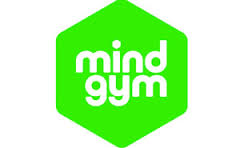MIND GYM Ltd. v. MINDGYM KIDS LIBRARY Pvt. Ltd.
Text of the judgement available here.
 The Delhi High Court recently (Mar. 21, 2014) granted an injunction against MINDGYM Kids Library Pvt. Ltd. in an action of passing off and infringement of the registered trademark MIND GYM held by UK based company MINDGYM Ltd.
The Delhi High Court recently (Mar. 21, 2014) granted an injunction against MINDGYM Kids Library Pvt. Ltd. in an action of passing off and infringement of the registered trademark MIND GYM held by UK based company MINDGYM Ltd.
Facts of the Case: This was a suit for the grant of an injunction against the defendants for passing off and infringement among others regarding the plaintiff’s registered trademark Mind Gym which the plaintiffs registered as early as 2004. The plaintiffs were involved in the business of education/training and allied services. The defendants, incorporated in 2008, were involved in the business of running an innovative kids’ library and exchange concept under the name MIND GYM.
Contentions of the Parties: The suit is essentially based on a claim infringement of the plaintiff’s registered trademark that the defendant had applied to their services. The plaintiffs also claim that the defendants are passing off on their goodwill and reputation. The defendants on the other hand argue that they have been using the mark since the year 2006 although they have been incorporated only in the year 2008. In addition, they also argue that:
- The defendant argues that the mark MIND GYM is highly descriptive because it gives indication about the exercise of mind. Thus it is not protectable. The plaintiff denies this and also points that the defendant had also applied for registration of the very mark.
- Among other things the defendant also argues that the name was registered under the Companies Act and under various provisions the defendant is entitled to use the name of the company.
The Decision of the Court: The court held that the plaintiff’s mark, being validly registered was entitled to protection from infringement and therefore the defendant was restrained from using the trademark MIND GYM. The court also found that a prima facie case for passing off had been made out by the plaintiffs on the basis of trans-border reputation that the plaintiffs enjoyed.
The Reasoning of the Court: The court divides its reasoning into the following heads:
- Generic Name: The court here noticed that although the defendants had argued that the name was highly descriptive and cannot be registered, they had applied for a registration for the mark themselves. When the defendant has applied for such a registration, it is assumed that they consider the mark to be distinctive. They are now therefore stopped from arguing that it is not.
- Passing Off and Goodwill in India: Under this head the court essentially recognised that in a passing off action the aim is the protection of goodwill that the company has earned by its activities. The court also relied on the case N.R. Dongre v. Whirlpool to state that the goodwill could also be due to the trans-border reputation of the company and that it was not necessary that localised reputation was necessary. The plaintiffs had established on facts that they did (at least prima facie) have this reputation. The court also observed that there was a great risk of consumers being confused by the two marks and therefore the claim of passing off was made out.
- Infringement: The court observed that in order to prove infringement, the plaintiff must demonstrate that the defendant copied essential features of their registered trademark. Without venturing into an actual comparison of the marks, the court concluded that they were indeed identical and that the plaintiff had a valid registration. A prima facie case for infringement had therefore been made out.
- Trade Name: In this section the court observes that the defendant’s contention that the phrase MIND GYM was a part of its corporate name and that they should not therefore be restrained from using their corporate name was rejected by the court. The court cites a number of High Court judgements such as K.G. Khosla Compressors Ltd. v. Khosla Extraktion Ltd. and Montari Overseas Ltd. vs. Montari Industries Ltd., to clarify that the law had held on numerous instances that registered trademarks could not be used as a part of a corporate name. The Companies Act, 1956 (under which the defendants were incorporated) in S. 20 (2) (ii) also contains a provision that a company cannot be registered with a name that is identical with or too nearly resembles the name which has been previously registered.
- Different fields of activity: The court clearly lays down that the law has evolved to such a position that the different fields of activity of the two marks do not make a difference to the claim of passing off. As long as the plaintiff can demonstrate that there is a likelihood of confusion (which they have in this case) an injunction may be granted.
- Common to the Trade: Under this head, the court considers the arguments of the defendants that that the mark MIND GYM is common to the trade and there are many companies who have been using the mark MIND GYM as part of their corporate names or the firm names even prior to the user claimed by the plaintiff. Here the court observes that in order for such a claim to succeed the other users who use such a mark must be large in number or must have a substantial presence. Neither of these have been established by the defendants.

Dear Thomas,
It is a very good article, keep us the good work. Furthermore, the judgement covers the entire case law pertaining to grant of Interim Injunction in infringement and passing off cases. The clarity of reasoning is amazing.
Salman
Thank you 🙂